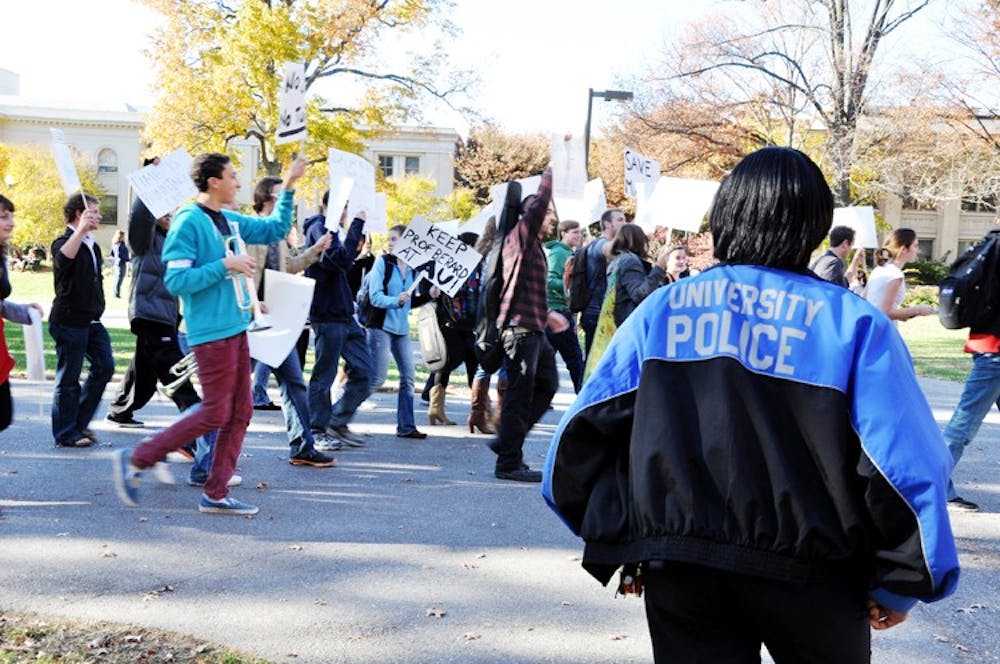Thirteen professors were granted tenure last spring. But three, including Professors Jesus “Manny” Berard and Jennifer Diascro, were denied tenure status.
When a professor receives tenure, it means that their position with the university becomes permanent.
“[To be tenure track] means that you have to prove yourself in various different ways as a member of the university community,” said Jeffery Middents, a tenured literature professor in the College of Arts and Sciences. “The idea behind [tenure] is that you have vested yourself within the university, and the university has vested itself within you.”
AU currently has 323 tenured faculty members and 131 tenure track professors.
Professors on the tenure track go through a six-year process during which they are evaluated on teaching, scholarship and service. These categories evaluate the strength of a professor in his or her teaching methods, research or scholarly works and works inside and outside of AU.
Although the specific requirements vary by school and department, determining professors’ tenure status is a “very time-intensive process, done very carefully” that evaluates all strengths and weaknesses of a professor, according to Starr.
Changes to the Faculty Manual
A new faculty manual was approved by the Faculty Senate May 15 and contains more explicit guidelines for the tenure process and necessary requirements. Tenure decisions for Berard and Diascro were made prior to the approval of the new faculty manual.
The new manual is more specific in it’s requirements than the last, according to Diascro.
A professor’s tenure file is reviewed by the school and the AU administration to ensure they are meeting the requirements for tenure in their department.
The cumulative records of discussion from these earlier reviews are included in the file and highlight particular strengths and weaknesses in the file that may affect the final decision to grant tenure.
Process
The tenure process begins when a professor hired as tenure track faculty creates a file with student evaluations and letters of commendation that support evidence of his or her teaching, scholarship and service among other things.
The dean of the professor’s school often solicits external letters from experts in the tenure candidate’s field that are familiar with their work to evaluate a professor’s scholarship.
The only outlet for student input in the tenure process is through student evaluations, which are taken into account when evaluating a tenure candidate’s teaching record.
The sixth and final year of tenure track is the most intensive.
During that year, the candidate’s file passes through at least five stages of review with:
- The Rank and Tenure Committee, comprised of the tenured members of the department plus a tenured professor from another department
- The dean of the candidate’s school
- The Committee on Faculty Actions, comprised of senior faculty from across the University
- Provost Scott Bass
- The Board of Trustees
After each stage of the process, the candidate is notified of the decision and has the right to respond within a week of each decision.
AU President Neil Kerwin reviews tenure files only when the tenure decision is appealed.
A professor has a three-week period after a final decision is made against granting tenure in which he or she can submit an appeal to the Committee on Faculty Equity and Grievances.
If a professor chooses not to file a grievance, or if the grievance is denied, the professor has one year before they must leave the University.
lbarnhart@theeagleonline.com





